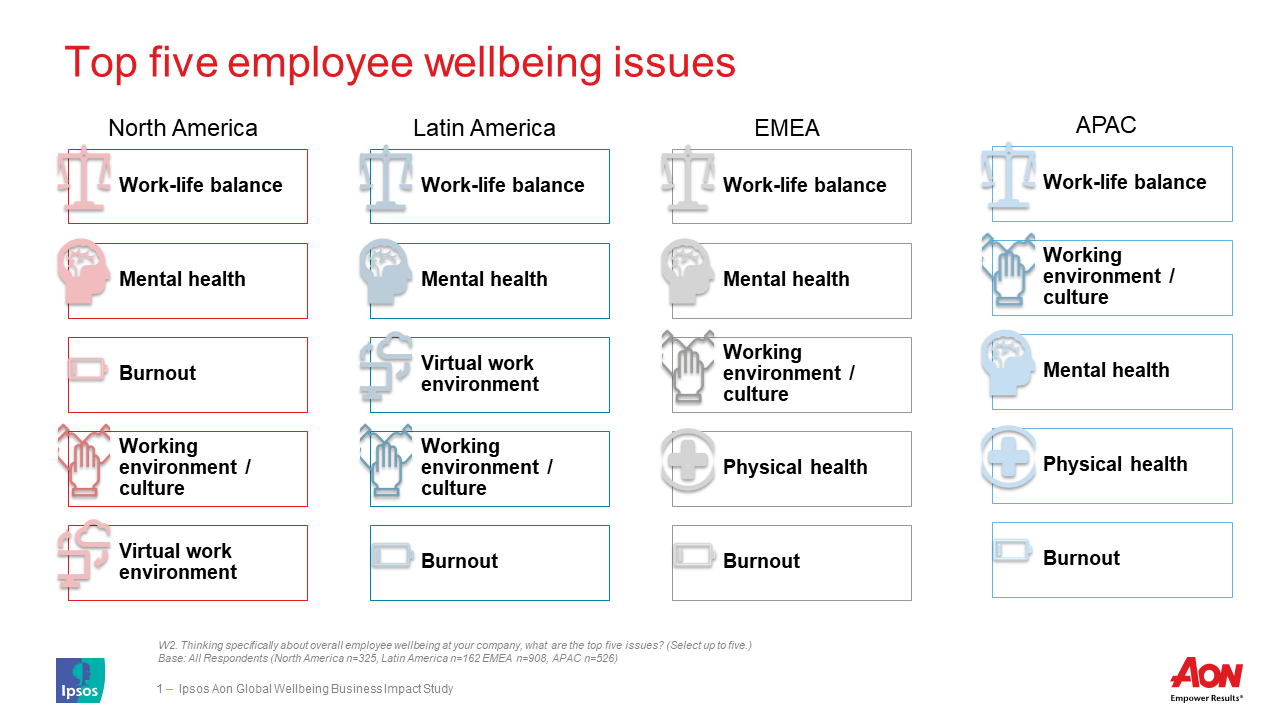A healthy and happy workforce is a more productive workforce
Globally, 82% say employee wellbeing is important at their company. The countries that are most likely to say wellbeing is important to their company are Finland (89%), Czech Republic (88%), Norway (88%), and New Zealand (88%). On the other hand, countries that are least likely to say wellbeing is important are Puerto Rico (67%), Ecuador (63%), and Peru (63%).
Top employee wellbeing issues globally include work-life balance (65%), mental health (46%), working environment/culture (44%), physical health (35%), and burnout (33%). Across regions, work-life balance is the top employee wellbeing issue followed by mental health in North America, Latin America, and EMEA. Working environment/culture is the second top issue in APAC. In North America, burnout is the third top issue and in the other regions, burnout is the fifth top issue.

See the survey results and download the report on Aon's website here



